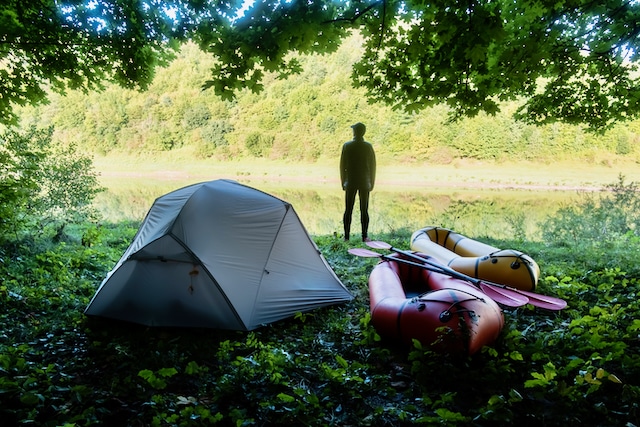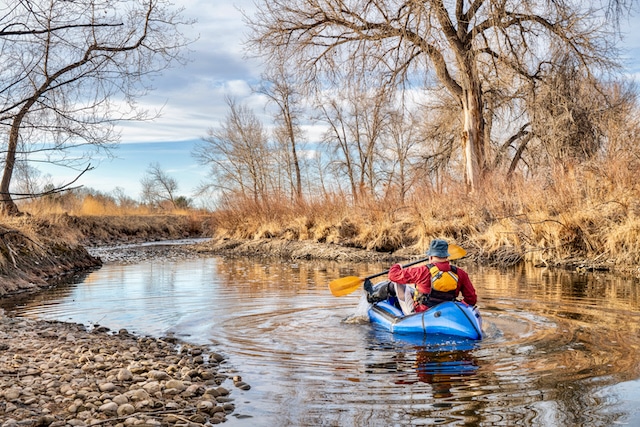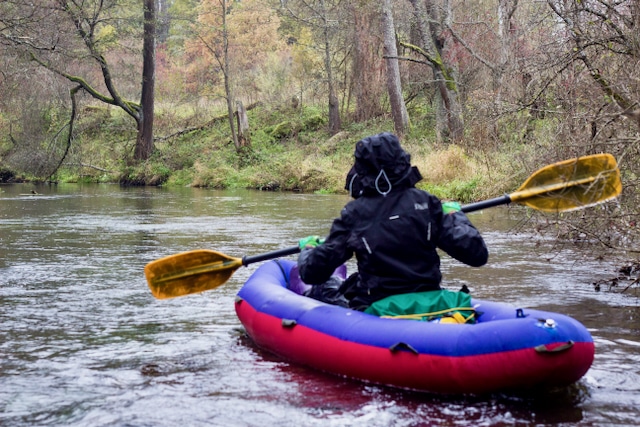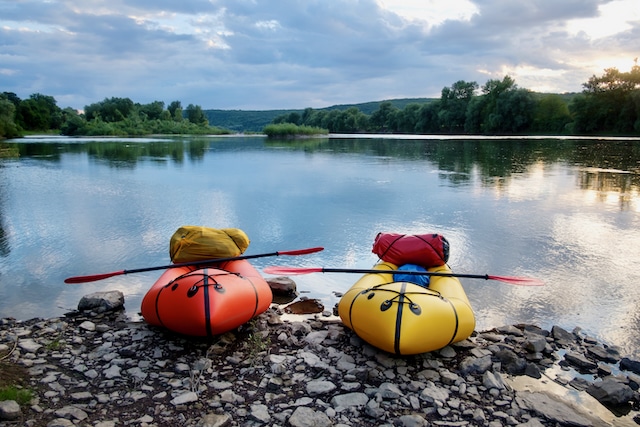Training objectives
– Discover an activity that provides a new way of feeling and relating to nature.
– Know the possibilities offered by this sport modality combined with trekking or mountain biking.
– Know the equipment, maintenance and basic repairs of the packraft.
– Learn the basic techniques and skills to navigate safely with the packraft.
– Know how to recognize the fundamental dangers of rivers and open waters
– Acquire basic self-rescue techniques and “wet reentry”
– Know and learn how to use the safety and rescue equipment.
– Know the basics of camping with the packraft and its transport.
– Transmit the respect that nature deserves and act consistently with the values of environmental conservation.
– Make known and apply the rules of “Leave no Trace” in our adventures.
Training contents
• Introduction:
“There’s a joyous freedom in having a small boat that you can take anywhere and can take you everywhere. Packrafts make the simplest family outings and the most ambitious adventures possible.”
Luc Mehl
The packraft allows you to combine hiking or mountain bike routes (also skis or snowshoes), with navigation in rivers, lakes and open water, making itineraries and even large expeditions possible, which would not otherwise be possible.
Traveling down the river, camping every day in a different place, allows you to enjoy nature in a unique way. Often the perspective of the landscapes that can be seen, discovered and felt with a packraft are very different from other activities.
This opens up a world of new possibilities, with itineraries, destinations and difficulties for all tastes.
• Audience:
Anyone who is interested in knowing the basic principles of packrafting. The fundamental techniques of navigation, safety and self-rescue.
• Contents:
– Equipment: Clothing, footwear and moisture management
– Meterial: types of packrafts, shovels, harnesses, helmets and other safety equipment
– Skills: Packraft control, paddling techniques, positioning, wet re-entry
– Camping: Basic camping techniques with the aim of causing minimal impact (Leave No Trace)
– Basic knowledge of rivers and open waters. How do they work?
– Rescue: From the shore and from the water
– Risk assessment and planning
– Repair of equipment and material
• Format:
– 18 – 20 hours approx. Friday, 3hT; Saturday, all day; Sunday, 7 a.m. (from 9:00 a.m. to 4:00 p.m.).
Activity scheduled in the AMAROQ EXPLORERS calendar. Also open on demand. It can adapt to different groups of users.
- - No prior training is required. Only desire to learn, experience and share
- - Know how to swim
- - Have a minimum physical condition to be able to walk with a rucksack on the back of around 40 l with a difference in altitude of 500 m and a 5 km route.
- - Be able to paddle in choppy waters for at least an hour
- - Backpack of 40 - 50 liters
- - Sleeping bag
- - Matress
- - Appropriate clothing
- - Complete change of spare clothes in waterproof bag
- - Camp equipment not explicitly named such as canteen, frontal, ...
- - For any doubts, contact us
- First night at the Amaroq Explorers Base Camp
- Packraft
- Paddle
- Life jacket
- Tents or tarps
- Stoves
- Notes
- Amaroq Explorers guide
- Accident and liability insurance
- Taxes
- Food
- Transportation of the participants
- Everything not specified as included
- 200 €
-
16:00
– Arrival at the Amaroq Explorers Base Camp/ classroom
– 3 hours of theory
– Dinner -
08:00
– Breakfast
– Review of equipment and material
– Departure to the practice location
– Throughout the day, we will do different workshops during the raftpack tour, which will end at the point where we will set up camp.
– Dinner
– Overnight -
08:00
– Breakfast
– Workshops
– Departure to the starting point where we have the vehicles
– Debriefing
– Review of the material
– Farewell



